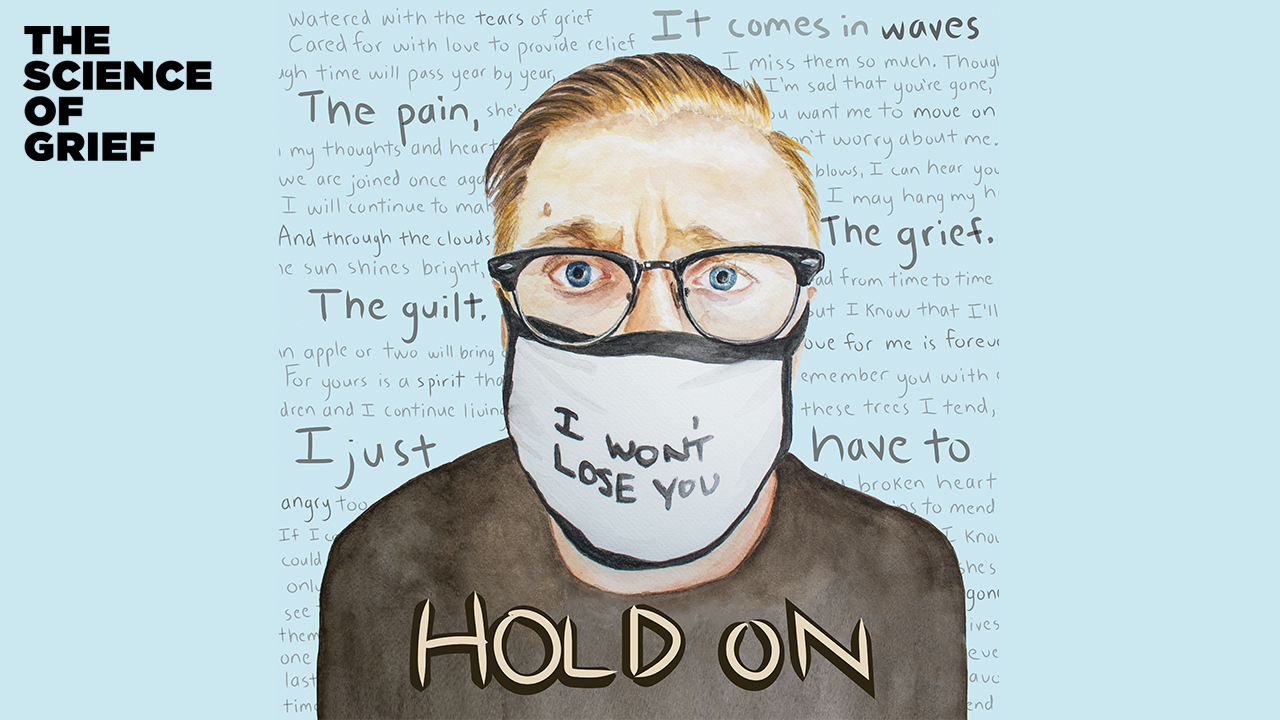Science of Grief: Exploring Unexpected Loss
Losing a loved one during a pandemic presents unique challenges and exacerbates those feelings of loneliness, says Abigail Waller, a clinical social worker.

The Science of Grief, produced by WDET and Science Gallery Detroit, explores the stories, science and solutions around grief and mental health. “It started from my own personal journey after losing my brother Marcus in 2013,” explains host Natasha T. Miller. “It was really hard for me to process the grief that I was experiencing after losing someone so close. But I learned how beneficial it was sharing my story with other people and listening to their stories.”
The podcast makes space for young adults to share their stories, but also lead the conversation. In this episode, Aaron Burch shares his story of unexpected loss and Abigail Waller, a clinical social worker specializing in grief, provides insight and solutions for dealing with loss-related depression and anxiety.
Never miss an episode!
Subscribe where ever you listen to podcasts:
Apple Podcast — Spotify — NPR — Stitcher — Google Podcasts — TuneIn
Aaron Burch Remembers His Loving Mother
Aaron Burch lost his mother suddenly to COVID-19 in April 2020. Originally treated for bi-lateral pneumonia, she was eventually diagnosed with COVID-19, “And, thus began to fight for her life,” remembers Burch.
“The thing … that a lot of people don’t understand about COVID is tha it’s not a steady decline. It’s a roller coaster because there are good days, there are days where things seem to be getting better,” says Burch. “And then a day later … everything falls apart.”
Due to the state of the pandemic, Burch’s mother, a loving matriarch and doting grandmother, passed away surrounded by hospital support staff and without her family, something Burch says was one of the most damaging parts of the loss he experienced. “It was my worst fear that she was going to be alone and afraid when she had passed away,” he says. “Then that came to fruition.”
Following the sudden loss of his mother, Burch suffered from depression and anxiety. “I would make the mistake of getting on social media or watching the news and hearing … just awful, awful things that people had to say, especially people in positions of power, and I would have panic attacks at work,” he recalls.
Solutions from Clinical Social Worker Abigail Waller
“Grief by nature is a very lonely and isolating experience,” Abigail Waller says of Burch’s story. “And losing a loved one during a pandemic presents unique challenges and exacerbates those feelings of loneliness and helplessness when someone’s dying.”
Waller, a CAPS counselor at Michigan State University, is intimately familiar with grief, both through her profession as well as through her own unexpected loss of her son Charlie. She joins Natasha T. Miller to provide guidance on how to manage the grief experienced by Aaron and so many others.
Natasha T. Miller, Science of Grief Host: How can you cope with not being there for somebody in those final moments?
Abigail Waller, MSU CAPS: I was thinking about the word “bereavement.” … So the Latin root word of “bereavement” means “to be robbed.” When Aaron was talking, I was really thinking about that feeling that he’s been robbed; robbed of his mom, robbed of his children having a grandmother, robbed of his identity, his security, predictability. And I think … what helps? It’s patience. It’s self-compassion. It’s staying connected with people. And it’s really, it’s really challenging.
How do we start to see or allow ourselves to just be in the moments that are that are good for us, and they’re good to us, without constantly thinking about what’s missing?
I get back to acknowledging it, to sit with it. There is no shortcut, unfortunately, processing the pain of grief. And, I don’t want to say move through it because that’s misleading, but to find more love than pain. … I guess the goal in grief is to have more love than pain. And the way we do that is being able to sit and be with the pain of it.
Are there any cures or tips that you have for people who are dealing with anxiety and depression linked to loss?
I think the very first thing is just to let people know that it’s normal. And this is why grief groups are so, so powerful, is because people learn that their experiences and their symptoms are normal, and that they’re not going crazy. … And … there is no timeline to grief when the goal is not to get to closure or acceptance. It’s an ongoing process, but in this ongoing process, it’s learning to sit with the intensity of the feelings. And it’s learning to be kind. It’s learning to be kind to oneself.
Is there a way to successfully prepare ourselves for these moments?
Grief is the price we pay for love. And to know that our pain is a reflection of our love, and trying to reframe it in that way can be a little bit less terrifying when we lose someone.
Seeking Help
While this podcast is meant to make space for sharing stories and solutions, it is not a substitute for professional help. If you have a mental health concern and need someone to talk to, please contact a mental health professional or your doctor.
If you are in a suicidal crisis or emotional distress, please call the National Suicide Prevention Lifeline: 800-273-8255.
The Science of Grief podcast is a collaboration between WDET and Science Gallery Detroit, and is supported by the Children’s Foundation of Michigan, MSUFCU and Science Sandbox.

Trusted, accurate, up-to-date
WDET is here to keep you informed on essential information, news and resources related to COVID-19.
This is a stressful, insecure time for many. So it’s more important than ever for you, our listeners and readers, who are able to donate to keep supporting WDET’s mission. Please make a gift today.
